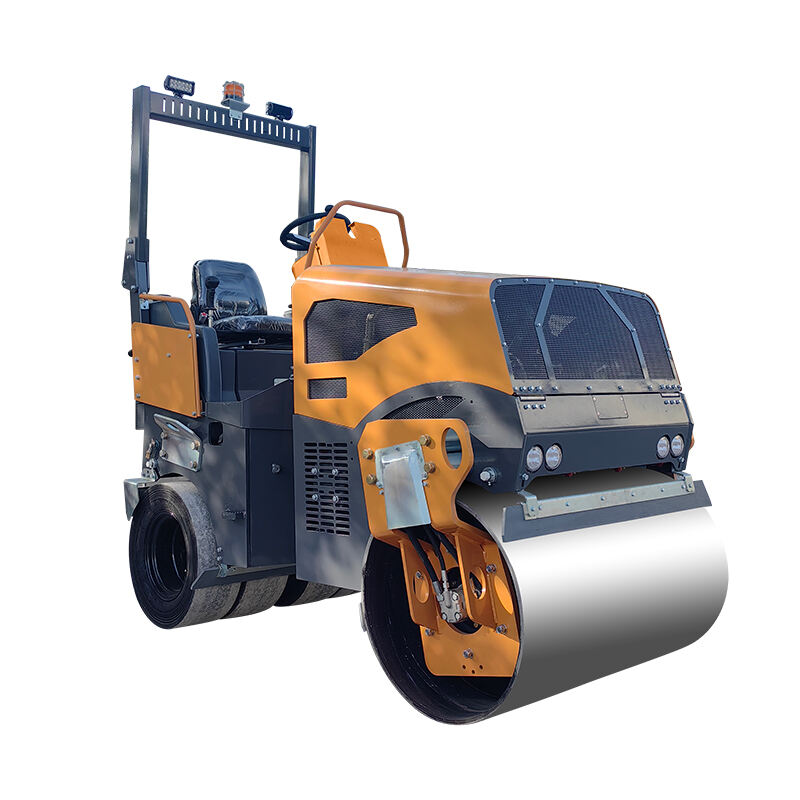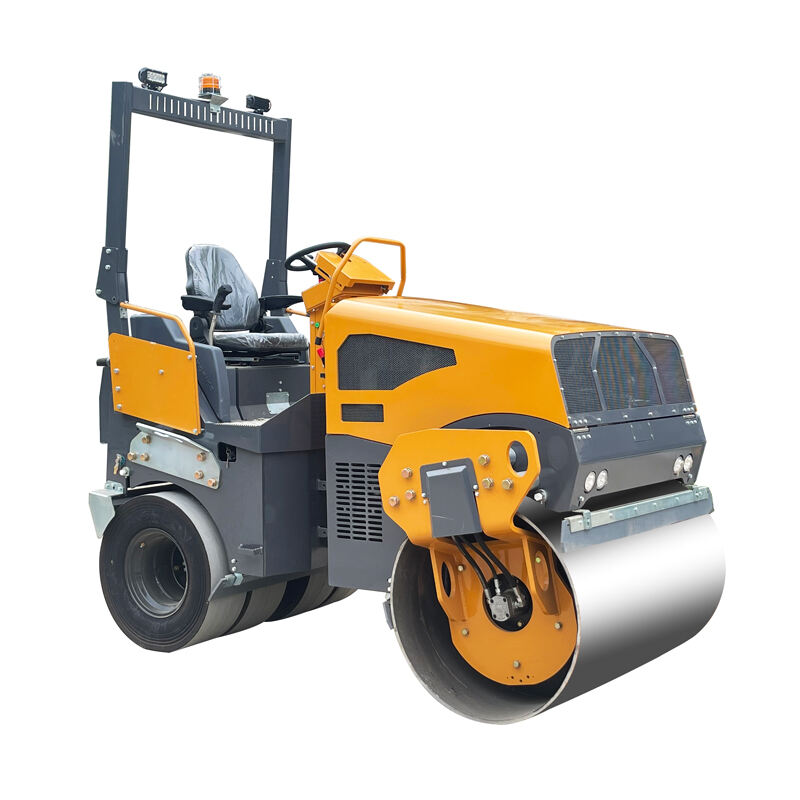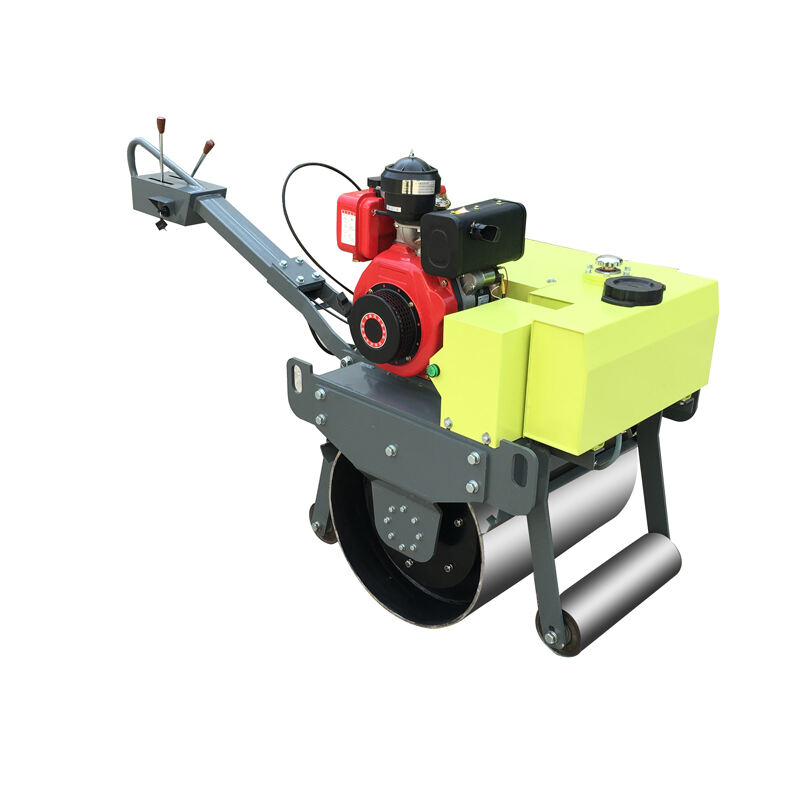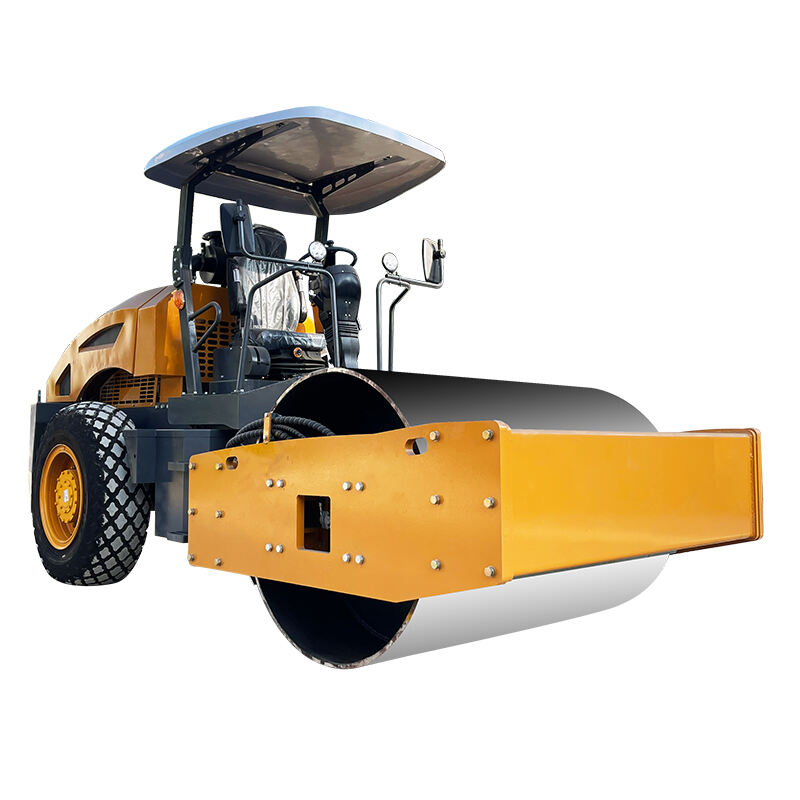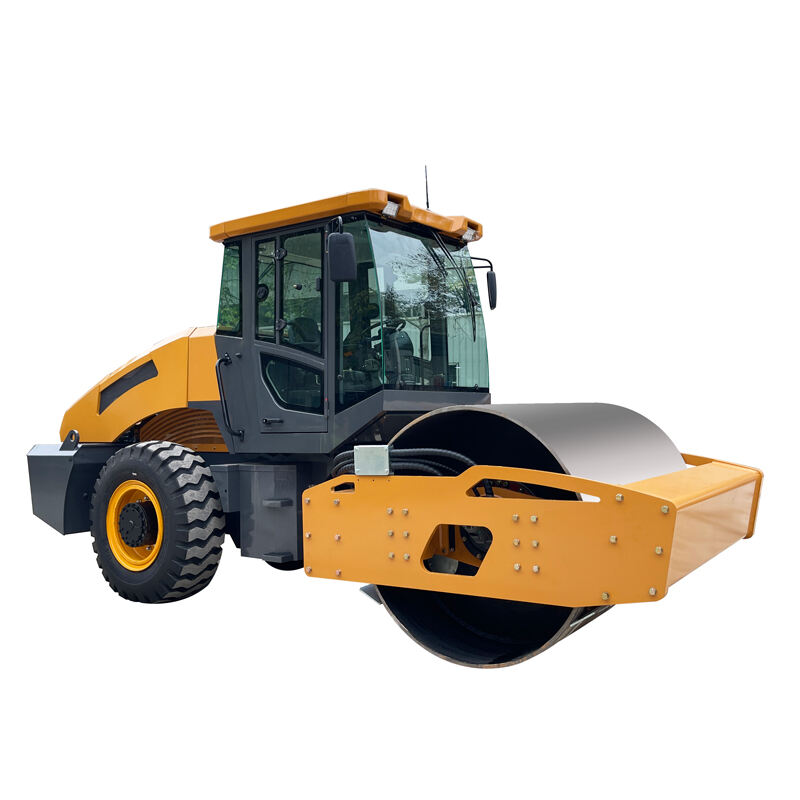Road Rollers: How They Ensure Road Durability
How Road Rollers Enhance Road Durability
The Science Behind Soil and Asphalt Compaction
Soil and asphalt compaction play a critical role in the design and longevity of roads. Effective compaction ensures a solid and stable foundation, preventing future surface deformations such as cracks and potholes. Optimal moisture content and layering are essential for achieving ideal compaction levels. The process involves adding water to reach the necessary moisture content, enhancing the soil's density and cohesiveness. Research indicates that roads with well-compacted bases can be up to 50% more durable than those with inadequate compaction. Therefore, mastering this science is vital for any road construction project.
Preventing Structural Failures Through Proper Density
Proper compaction is vital for preventing structural failures like cracks and potholes that can result from inadequate density. Without the right compaction, roads are susceptible to frequent damage, leading to increased repair costs. Studies show that poor road construction solutions, including improper compaction, reportedly cost $36 billion in annual repairs and maintenance worldwide. Incorporating consistent monitoring and density tests during road construction can significantly reduce these failures, ensuring long-term structural integrity and reducing maintenance costs.
Vibration Technology's Role in Long-Term Stability
Vibration technology is integral to achieving long-term stability in road construction. This technology facilitates particle rearrangement, significantly improving compaction efficiency. Selecting the right vibration frequency based on the material type enhances the road's structural robustness. Engineering studies have shown a direct correlation between vibration technology and improved road performance. Roads constructed using vibration methods exhibit enhanced durability, able to withstand traffic stress and environmental factors for extended periods.
Exploring Roller Options
Vibratory Roller: Vibratory rollers are pivotal in comprehensive road construction projects. These machines are designed to compact various materials, such as soil and asphalt, to ensure road surfaces are both smooth and durable. They use vibrations to effectively enhance the compaction process, ensuring that construction outcomes are both efficient and long-lasting. Whether you're dealing with granular soils or embarking on asphalt paving, vibratory rollers introduce the foundational density improvements necessary for constructing high-quality roads. Looking into sourcing a vibratory roller can be a valuable investment for any road project, aligning with optimal structural integrity goals.
Types of Road Rollers for Different Compaction Needs
Smooth Drum Rollers: Ideal for Surface Finishing
Smooth drum rollers are a key component in achieving high-quality surface finishing for roads. These rollers are primarily designed to compact asphalt and other surface materials, ensuring a smooth and durable finish. Their primary applications include the final stages of road construction, where achieving an even, compact surface is crucial. Customers have consistently praised the surface quality improvements attained with smooth drum rollers, noting enhanced aesthetic appeal and road longevity. Statistical data shows that using smooth drum rollers can significantly boost workflow efficiency by reducing project completion time while maintaining high standards of quality.
Pneumatic Rollers: Multi-Purpose Compaction Solutions
Pneumatic rollers offer versatility in compaction, making them ideal for a variety of soil types and conditions. These rollers utilize multiple rubber tires to achieve uniform compaction. Case studies have demonstrated their effectiveness across different terrains, such as sandy, loamy, and clayey soils, proving them indispensable in diverse applications. Compared to traditional methods, pneumatic rollers often provide a cost-effective solution, reducing expenses related to soil stabilization and surface preparation. Their ability to smoothly transition between different compaction requirements without compromising on effectiveness makes them a favorite among construction professionals.
Sheepsfoot Rollers for Cohesive Soil Challenges
Sheepsfoot rollers are uniquely engineered to handle the challenges posed by cohesive soils. Featuring tapered studs or feet protruding from the roller's surface, they are particularly adept at compacting clay and other cohesive soil types that might not compact effectively with smooth rollers. Performance data from various construction projects reveal the superiority of sheepsfoot rollers in achieving deep compaction in challenging soil types, often leading to reduced structural failures in road foundations. The challenges inherent to cohesive soils, like water retention and structural rigidity, are effectively mitigated through the design and functionality of sheepsfoot rollers, ensuring stable and durable road construction outcomes.
Key Features of Modern Road Rollers
Adjustable Vibration Frequency Controls
Adjustable vibration frequency controls are crucial for tailoring the compaction process to suit various material types. The ability to modify the frequency ensures that the applied force is appropriate for the specific characteristics of the surface, such as soil density or asphalt thickness. This flexibility not only enhances compaction efficiency, but also significantly impacts the final quality of the road surface. Experts suggest that using correct vibration settings can minimize the potential for over-compaction, which may lead to structural issues or reduced durability. By optimizing these controls, contractors can achieve a smoother finish and enhance the longevity of road infrastructure.
Eco-Friendly Engine Systems
Modern road rollers are integrating eco-friendly engine systems to align with increasing environmental regulations and sustainability goals. These innovative engines exhibit reduced emissions, contributing to a decrease in the carbon footprint associated with construction activities. For instance, adopting these systems can lead to a noticeable reduction in pollutants, supporting ecological balance while complying with stringent emission norms. Regulatory compliance is paramount in the construction industry, not just for legal adherence, but also as a commitment to responsible environmental practices. As such, equipping machinery with eco-friendly engines not only meets these regulations but positions companies as environmentally-conscious leaders in their field.
Ergonomic Operator Cabin Designs
The significance of ergonomic operator cabin designs cannot be overstated when it comes to enhancing operator efficiency and comfort. An ergonomically designed cabin is equipped with features like adjustable seats, intuitive control panels, and noise-reducing insulation, which collectively reduce physical strain and fatigue. Operators report improved job performance when these enhancements are in place, as they can maintain focus and precision without the distraction of discomfort. Feedback from the field highlights that these thoughtful design elements directly translate to better work quality, lower operator turnover, and increased job satisfaction, ultimately benefiting both the operators and their employers.
The Role of Vibratory Rollers in Asphalt Compaction
Achieving Optimal Asphalt Density Ratios
Achieving the correct asphalt density ratios is critical for ensuring the longevity and durability of road surfaces. The asphalt density must meet specific criteria to resist wear and tear from traffic and environmental elements. Empirical data highlights the efficiency of vibratory methods over non-vibratory ones, proving them superior in achieving desired density levels. For instance, studies show that vibratory rollers compact asphalt layers more thoroughly, reducing voids and increasing strength. Best practices, such as frequent monitoring of compaction levels and adjusting roller settings, are essential to maintain these ideal density ratios and ultimately extend the lifespan of paved surfaces.
Layer-by-Layer Compaction Methodology
The layer-by-layer compaction technique is fundamental in achieving uniformity and strength in asphalt pavements. This methodology involves systematically compacting each asphalt layer before the next is applied, ensuring that uniform pressure and compaction are maintained. Benefits of this approach include enhanced structural integrity and prevention of weak spots that can lead to premature road failures. Case studies from various paving projects underscore the effectiveness of this method, illustrating how it results in more robust surfaces capable of withstanding heavy loads and adverse weather conditions. By adhering to a disciplined layer-by-layer strategy, construction teams can produce superior quality roadways.
Temperature Management During Paving
Temperature management is crucial for optimal asphalt compaction, as it directly influences the material's ability to bind and settle correctly. The effectiveness of compaction diminishes if the asphalt temperature falls outside the optimal range. Research data correlates precise temperature control with improved compaction quality and asphalt lifespan. Practically, managing temperature involves monitoring asphalt mix temperatures from the plant to the site and making necessary adjustments to compaction techniques as conditions change. Implementing these insights ensures a flawless paving process, resulting in smooth, durable roads that require less maintenance over time.
STORIKE Road Rollers: Engineered for Performance
ST3500C 3.5 Ton Combinated Tyres Vibratory Road Roller
The ST3500C 3.5 Ton Combinated Tyres Vibratory Road Roller is crafted for exceptional performance in diverse construction environments. Its advanced vibratory roller design offers superior compression, enhancing both operational efficiency and pavement quality. Users have praised the ST3500C for its reliability, noting significant improvements in project timelines and outcomes. Market performance data reveals that this model surpasses many competitors in terms of user satisfaction and durability.
ST4500C 4.5 Ton Combinated Tyres Vibratory Road Roller
The ST4500C 4.5 Ton Combinated Tyres Vibratory Road Roller stands out for its robust specifications, making it ideal for a myriad of construction tasks. Users commend the ST4500C for delivering consistent results, credited to its durable build and efficient operation. Customers highlight its advantage in project efficiency, reducing completion times significantly. Compared to other models, the ST4500C excels in efficiency and has consistently received favorable reviews for its performance and reliability.
SVH700 Walk Behind Single Drum Vibratory Road Roller
The SVH700 Walk Behind Single Drum Vibratory Road Roller is perfectly suited for smaller, more intricate jobs, owing to its walk-behind operation which enhances maneuverability. This model is favored in tight areas where larger machines might be impractical. Customers appreciate the ease of handling and control, often citing the SVH700 as a tool that increases productivity in compact spaces. Trends in market feedback show growing demand, underscoring its effectiveness in niche applications.
STS10 10Ton Single Drum Vibratory Road Roller
The STS10 10Ton Single Drum Vibratory Road Roller is a robust machine, equipped to handle medium-sized projects with versatility. It boasts key operational features that users have found reliable in varying job conditions, attesting to its effectiveness in delivering optimal compaction. Feedback from the market reveals a positive reception, with many users highlighting the STS10's superior performance compared to similar models with equivalent weight and capacity specifications.
STS12 12Ton Single Drum Vibratory Road Roller
The STS12 12Ton Single Drum Vibratory Road Roller is engineered for large-scale construction efforts, offering features targeting maximum performance. Users report high satisfaction owing to its metrics of performance stability and quality outcomes. In pricing analysis, the STS12 is noted for presenting an excellent value proposition, making it a preferred choice for contractors requiring reliability and efficiency without compromising budgetary constraints.
 EN
EN
 AR
AR CS
CS DA
DA NL
NL FI
FI FR
FR DE
DE IT
IT NO
NO KO
KO PL
PL PT
PT RO
RO RU
RU ES
ES SV
SV TL
TL ID
ID LV
LV SR
SR SK
SK SL
SL VI
VI SQ
SQ ET
ET TH
TH TR
TR AF
AF MS
MS GA
GA HY
HY KA
KA BS
BS LA
LA MN
MN MY
MY KK
KK UZ
UZ KY
KY

